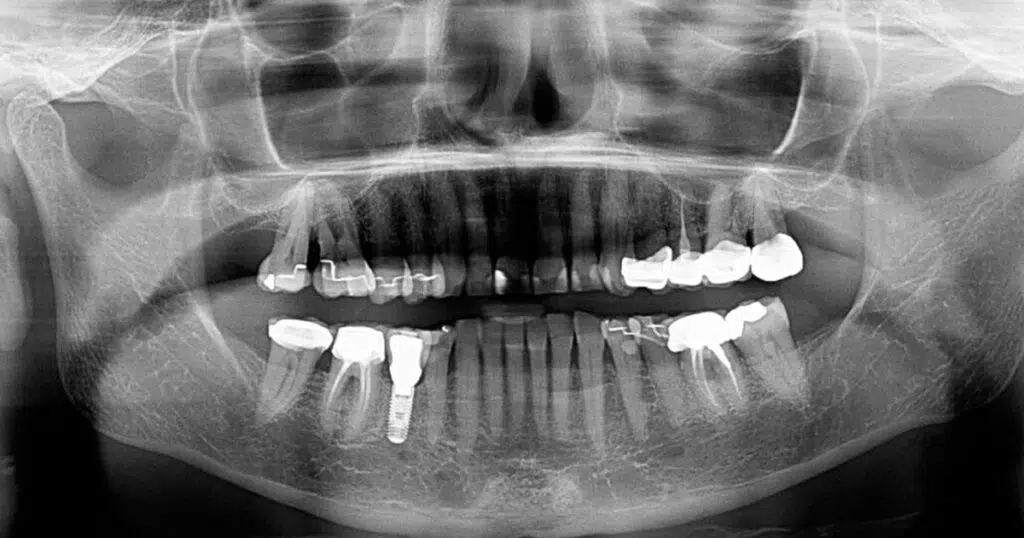
Are Dental Implants The Future Of Hearing Aids?
The next time Grandpa says he can’t hear you, don’t be surprised if he reaches in his mouth to adjust his teeth.
Researchers, after all, have found dental implants can make great hearing aids.
A study published in the September edition of the Journal of the Acoustical Society of America explains vibrations applied to replacements for lost teeth travel well through one’s jawbone to the inner ear. The finding could open the hearing assistance industry to the development of new, discreet, mouth-based alternatives to the conventional hearing aids and cochlear implants those with hearing impairments often times use.
Designs used by previous tooth-based hearing aids clipped onto molars and received sound wirelessly from a microphone placed behind the ear.
Jianxiang Tao, a dental researcher from Tongji University in Shanghai, China, wants to turn up the volume, so to speak, on the next generation of hearing aids by refining the designs for tooth-implant hearing aids. The electronics that issue sound vibrations would be built into the portion of a false tooth anchored into the jawbone.
The research the team had first and foremost to determine how well dental implants transmit sound compared with natural teeth and the mastoid bone behind the ear, which other types of hearing aids used to work.
So, the researchers applied sound tones to the implants, natural teeth and mastoid bones of 38 people who suffered hearing loss but sported just a single dental implant. For a wide range of frequencies, the volunteers could hear sounds through their implants as well as, or even better than, their natural teeth or mastoid bones.
Front-tooth implants appeared to work slightly better than the dental implants toward the back of the jaw, maybe because jawbone at the front of the mouth is harder than jawbone at the back, the team said.
Lower teeth and implants were found to work as well as uppers for transmitting sound.
Compared with traditional hearing aids, dental implant hearing aids could offer “excellent concealment, good comfort and improved quality of sound,” the study researchers wrote.
According to the Hearing Loss Association of America, approximately 48 million Americans have some degree of hearing loss, although only one in five people who would benefit from a hearing aid actually uses one. What’s more, people with hearing loss wait an average of seven years before seeking help.
All that said, the National Institute on Deafness and Other Hearing Disorders explains: hearing loss is the third most common physical condition after arthritis and heart disease; gradual hearing loss can affect people of all ages — varying from mild to profound; depending on the cause, it can be mild or severe, temporary or permanent;
degrees of hearing loss range from mild, moderate, severe and profound; congenital hearing loss means you are born without hearing; hearing loss is an invisible condition. Since hearing loss is often not visible, people might jump to the wrong conclusion that someone is aloof, confused, not smart, or has had a personality change; and, finally, the most important thing a person can do if they think they have hearing loss is to seek advice from a health care provider.



